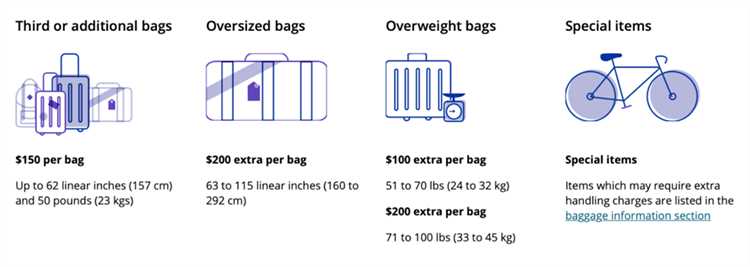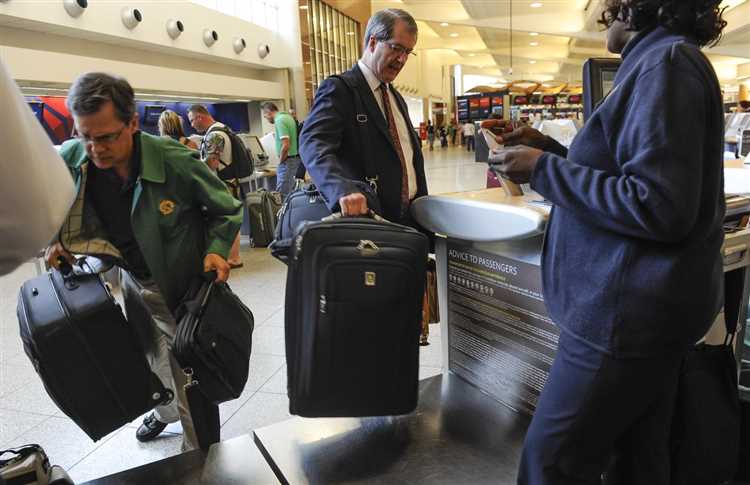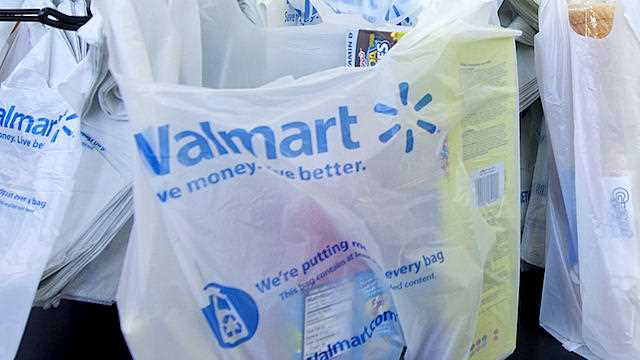
As of September 1, 2021, there is no statewide bag fee in Texas. This means that retailers in Texas are not required by law to charge customers for using plastic bags or other disposable bags.
However, it is important to note that individual cities in Texas may have their own bag ordinances. For example, cities like Austin, San Antonio, and Dallas have implemented bag fees or bans in an effort to reduce plastic waste and promote environmentally friendly practices.
These local bag ordinances vary in terms of the types of bags they apply to and the fees associated with them. Some cities may only charge a fee for plastic bags, while others may include paper bags as well. It is advisable to check the bag regulations in the specific city you are visiting or residing in to avoid any potential fees or penalties.
It is also worth mentioning that some retailers in Texas, regardless of whether there is a bag fee in their city, have voluntarily adopted practices to reduce bag waste. This may include offering reusable bags for purchase, providing incentives for customers to bring their own bags, or encouraging the use of alternative bag materials.
Overall, while there is no statewide bag fee in Texas, it is important to be aware of the bag regulations in the specific city you are in to avoid any potential fees or help contribute to the goal of reducing plastic waste.
- Bag fee laws in Texas
- Implications for retailers in Texas
- Environmental impact of bag fees
- Arguments for and against bag fees
- Arguments for bag fees
- Arguments against bag fees
- Comparison with bag fees in other states
- Public perception of bag fees in Texas
- Question-answer:
- Is there a bag fee in Texas?
- Why has Texas implemented bag fees?
- Which cities in Texas have bag fees?
- How much is the bag fee in Texas?
- Can I bring my own bags to avoid the bag fee?
- Do I have to pay a bag fee in Texas?
- Which cities in Texas have bag fees?
Bag fee laws in Texas

Bag fee laws in Texas vary from city to city. Some cities in Texas have implemented bag fees as a way to reduce plastic waste and promote the use of reusable bags.
For example, Austin, the capital city of Texas, has a bag fee ordinance that requires retailers to charge customers $0.25 for each single-use bag provided at the checkout. This fee applies to grocery stores, convenience stores, and most other retailers.
Other cities in Texas, such as Dallas and Fort Worth, do not currently have bag fee ordinances in place. However, there are ongoing discussions and proposals to implement bag fees to reduce single-use plastic bags.
In some cases, bag fees may only apply to certain types of stores or establishments. For instance, in some cities, bag fees may only apply to grocery stores or larger retailers, while smaller shops may be exempt from the fee.
It is important for residents and visitors to be aware of the bag fee laws in their specific city when shopping. By bringing reusable bags, consumers can avoid paying bag fees and help reduce plastic waste in Texas.
Implications for retailers in Texas
With the implementation of the bag fee in Texas, retailers will need to adjust their operations and strategies accordingly. This new regulation will have several implications for retailers across the state.
1. Increased costs: The bag fee will lead to increased costs for retailers as they will need to purchase and provide reusable bags for their customers. This means that retailers will need to take into account the additional expenses associated with implementing this new regulation.
2. Transition to reusable bags: In order to comply with the bag fee, retailers will likely need to transition from single-use plastic bags to reusable bags. This transition may require retailers to invest in a new inventory of reusable bags and educate their employees and customers about the importance of using them.
3. Customer perception: Retailers will need to consider the potential impact of the bag fee on customer perception and satisfaction. Some customers may view the extra charge as a burden or inconvenience, while others may appreciate the retailers’ efforts to reduce plastic waste. It will be important for retailers to effectively communicate the reasons behind the bag fee to their customers.
4. Sustainability initiatives: The bag fee presents an opportunity for retailers to enhance their sustainability initiatives. By actively promoting the use of reusable bags, retailers can position themselves as environmentally conscious and attract eco-conscious customers. This may include partnering with local organizations or offering incentives for customers who bring their own bags.
5. Compliance and enforcement: Retailers will need to ensure compliance with the bag fee regulation, including properly charging the fee and keeping accurate records. It will be important for retailers to stay updated on any changes or amendments to the regulation and to train their employees accordingly.
In conclusion, the bag fee in Texas will require retailers to make adjustments to their operations and strategies. By properly adapting to this new regulation, retailers can not only minimize the impact on their business but also contribute to the overall reduction of plastic waste in Texas.
Environmental impact of bag fees
Bag fees have been implemented in many cities and states across the United States, including in Texas, in order to mitigate the environmental impact of single-use bags. These fees encourage consumers to bring their own reusable bags or opt for paper bags instead of plastic bags.
Plastic bags are a significant contributor to environmental pollution. They are not biodegradable and can take hundreds of years to break down in the environment. Once they do break down, they can release harmful toxins into the soil and water, posing a threat to wildlife and ecosystems.
By implementing bag fees, Texas aims to reduce the consumption of plastic bags and promote the use of more eco-friendly alternatives. This, in turn, can help decrease the amount of plastic waste that ends up in landfills or as litter in natural spaces.
Furthermore, bag fees can also help conserve natural resources. The production of plastic bags requires the extraction of non-renewable resources such as oil and gas. By reducing the demand for these materials, bag fees contribute to a more sustainable use of resources.
Studies have shown that bag fees have been effective in reducing plastic bag usage. In cities and states where bag fees have been implemented, there has been a notable decrease in the number of plastic bags used. This indicates that consumers are becoming more mindful of their choices and are actively choosing alternatives to single-use bags.
In addition to the environmental benefits, bag fees can also generate revenue that can be invested in environmental initiatives. Some cities allocate the funds collected from bag fees towards promoting recycling programs or conducting environmental education campaigns.
Overall, bag fees in Texas and other regions have a positive environmental impact by reducing plastic bag consumption, conserving natural resources, and promoting sustainable practices. These fees serve as a reminder of the importance of making conscious choices to protect our environment for future generations.
Arguments for and against bag fees

Bag fees have become a topic of debate in many states, including Texas. Proponents argue that bag fees are necessary to reduce waste and promote environmental sustainability, while opponents believe that bag fees place an additional burden on consumers and hinder economic growth.
Arguments for bag fees1. Environmental impact: Bag fees encourage consumers to bring their own reusable bags, reducing the amount of single-use plastic bags that end up in landfills and oceans. This helps to protect wildlife and conserve resources. 2. Cost savings: By using reusable bags, consumers can save money in the long run by reducing the need to purchase single-use plastic bags for their shopping trips. 3. Encourages sustainable behavior: Bag fees serve as a reminder to consumers to be mindful of their consumption habits and make sustainable choices. This can have a positive ripple effect on other aspects of people’s lives. 4. Revenue generation: Bag fees can generate revenue for local governments, which can be used to fund environmental initiatives, waste management programs, or other community projects. |
Arguments against bag fees
1. Consumer burden: Bag fees place an additional cost on consumers, especially those on low incomes. This can unfairly affect those who rely on single-use bags for their shopping needs. 2. Ineffective solution: Critics argue that bag fees do not significantly reduce plastic waste, as consumers may choose to purchase other types of single-use bags or dispose of their bags in alternative ways. 3. Economic impact: Bag fees could have a negative impact on businesses, especially small retailers, as consumers may be hesitant to make purchases if they have to pay an additional fee for bags. 4. Lack of alternatives: Some opponents of bag fees argue that there are limited alternatives available for consumers, such as paper bags, which also have their own environmental implications. |
It is important for lawmakers to carefully consider these arguments and weigh the benefits and drawbacks of bag fees before implementing such policies. Finding a balance between environmental sustainability and consumer affordability is crucial in addressing the issue of plastic waste in society.
Comparison with bag fees in other states
While Texas does not currently have a statewide bag fee, several other states in the United States have implemented bag fees as a way to reduce single-use plastic bag consumption. These fees vary from state to state, with some states having higher fees and others having lower fees.
One example is California, which implemented a statewide bag fee of $0.10 per bag in 2016. This fee applies to all retailers, including grocery stores, convenience stores, and pharmacies. The goal of the fee is to encourage consumers to bring their own reusable bags, reducing the amount of plastic waste in the environment.
New York is another state that has implemented a bag fee. The fee, which went into effect in 2020, is $0.05 per bag. Like California, the fee applies to all retailers and aims to reduce plastic bag consumption.
In contrast, some states have opted not to implement bag fees. For example, Florida does not currently have a statewide bag fee in place. However, some cities within the state, such as Miami Beach and Coral Gables, have enacted their own bag fees to address the issue of plastic waste.
It is important to note that the presence or absence of a bag fee does not necessarily indicate the effectiveness of plastic waste reduction efforts in a state. Some states without bag fees have implemented other initiatives, such as recycling programs or bans on single-use plastic bags, to address the issue of plastic waste.
Overall, bag fees in other states serve as examples of different approaches to reducing single-use plastic bag consumption. While Texas may not have a bag fee currently, the issue of plastic waste and its environmental impact continues to be a topic of discussion and potential future action in the state.
Public perception of bag fees in Texas

The implementation of bag fees in Texas has generated mixed reactions among the public. While some individuals support the fees as a way to promote environmental sustainability and reduce waste, others view them as an unnecessary burden on consumers.
Proponents of bag fees argue that they encourage the use of reusable bags and reduce the reliance on single-use plastic bags. They believe that the fees act as a deterrent for consumers, making them more conscious of their consumption habits and encouraging them to switch to eco-friendly alternatives. Additionally, supporters of bag fees highlight the positive impact it can have on the environment by reducing litter and waste in landfills.
On the other hand, opponents of bag fees argue that they disproportionately affect low-income individuals who may rely on free plastic bags for their daily needs. Critics claim that bag fees are regressive, as they place a financial burden on those who may not be able to afford reusable bags. Additionally, some argue that bag fees do not effectively address the larger issue of plastic pollution and that alternative solutions, such as recycling programs, would be more effective and equitable.
The public perception of bag fees in Texas varies depending on one’s values and priorities. Some view bag fees as a necessary step towards a more sustainable future, while others see them as an unnecessary inconvenience. Regardless of public opinion, bag fees have become increasingly common across various cities in Texas as part of a broader effort to address plastic pollution and promote environmental stewardship.
| Pros | Cons |
|---|---|
| Encourages use of reusable bags | Disproportionately affects low-income individuals |
| Reduces reliance on single-use plastic bags | Perceived as an unnecessary burden on consumers |
| Promotes environmental sustainability | Does not effectively address larger plastic pollution issue |
Question-answer:
Is there a bag fee in Texas?
Yes, there is a bag fee in some cities in Texas. In an effort to reduce plastic waste, several cities in Texas have implemented bag fees or bans on single-use bags. It is important to check the local regulations of the city you are visiting to see if there is a bag fee in place.
Why has Texas implemented bag fees?
Texas has implemented bag fees in an effort to reduce plastic waste and encourage the use of reusable bags. Plastic bags are a major source of pollution and often end up in landfills or as litter in the environment. By implementing bag fees, cities hope to incentivize individuals to switch to reusable bags and reduce the negative impact of plastic bag usage.
Which cities in Texas have bag fees?
Several cities in Texas have bag fees or bans. Some of the cities include Austin, Dallas, Fort Worth, and San Antonio. However, it is important to note that these regulations can vary and it is best to check the specific bag regulations of the city you are visiting.
How much is the bag fee in Texas?
The bag fees in Texas can vary depending on the city. For example, in Austin, the bag fee is $0.25 per bag at most retail establishments. However, the bag fees can range from $0.05 to $0.10 per bag in other cities. It is important to check the local regulations of the city you are visiting to determine the specific bag fee amount.
Can I bring my own bags to avoid the bag fee?
Yes, bringing your own bags is a great way to avoid the bag fee in Texas. Many cities encourage the use of reusable bags and exempt them from the bag fee. By bringing your own bags, you can not only save money but also help reduce the amount of plastic waste that ends up in landfills or as litter in the environment.
Do I have to pay a bag fee in Texas?
Yes, in Texas, there are cities that have implemented bag fees or bans for single-use plastic bags. The specific regulations may vary depending on the city you are in. Some cities have a fee per bag, while others have completely banned single-use plastic bags.
Which cities in Texas have bag fees?
Several cities in Texas have implemented bag fees or bans for single-use plastic bags. Some of the cities include Austin, Dallas, Fort Worth, San Antonio, and Corpus Christi. However, the regulations may vary in each city, so it’s important to check with the local authorities or retailers for the specific details.
